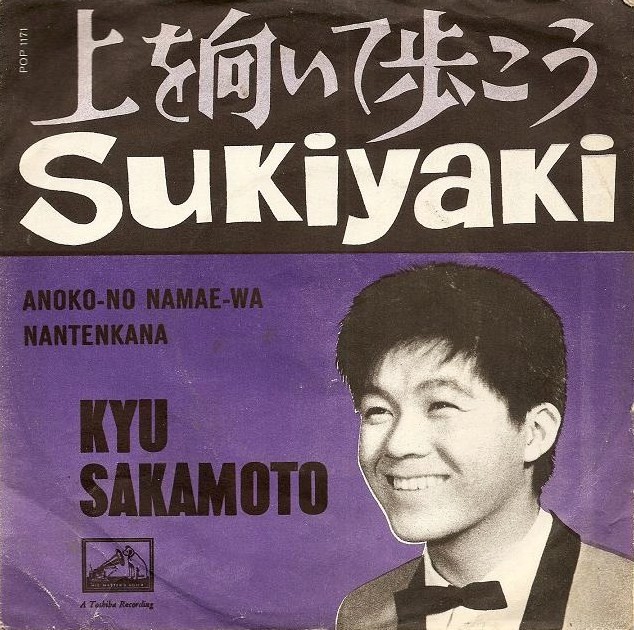I'm adding this, in light of a recent post at DU.
Tue Sep 10, 2024: Many of us remember this
The Sukiyaki Song (Ue o Muite Aruko)
Rokusuke Ei and Hachidai Nakamura, 1963
Song Bakground
The lyrics of "Sukiyaki" were written by Rokusuke Ei (1933–2016) to express his frustration with the ratification of the Treaty of Mutual Cooperation and Security between Japan and America. The Treaty, originally signed in 1951, granted the United States the right to maintain a military presence in the Asian nation. The renewal of the Treaty in 1959 sparked widespread student demonstrations. Ei voiced his disappointment in his lyrics, which describe a man who looks up to the sky to prevent his tears from falling. Despite his sadness, the lyrics optimistically look ahead to what might be coming: "A good fortune is beyond the clouds." The upbeat music of the song, written by Hachidai Nakamura (1931–92), reflects this optimism.

"Sukiyaki Song" single.
Originally titled "Ue o Muite Aruko," the song was renamed "Sukiyaki" when it was released in the United States. The performer was Kyu Sakamoto (1941–85), a clean-cut, twenty-one-year-old Japanese singing star with a vocal style and presence similar to contemporaneous teen idols Ricky Nelson and Bobby Darin. Upon its release, the song reached number one on the Billboard charts, making it the first song performed by an Asian to become a hit in America.
To many Americans, the song was symbolic of Japan's return to prominence after its defeat in the Second World War. When it was released, the 1964 Olympics were scheduled to take place in Tokyo and the Japanese economy was expanding. Rather than looking back at the failed protests surrounding the Treaty, the song was widely interpreted as reflecting on the aftermath of the war and looking forward to a better future.
Ei, who went on to be a well-known author and television personality, penned lyrics for other popular songs sung by Sakamoto and continued to collaborate with Nakamura.
{snip}
 = new reply since forum marked as read
= new reply since forum marked as read
